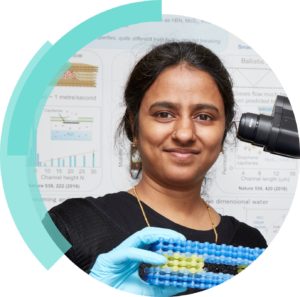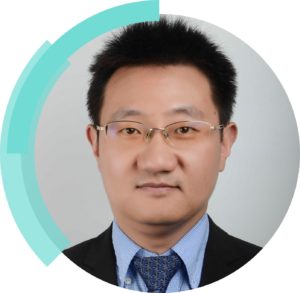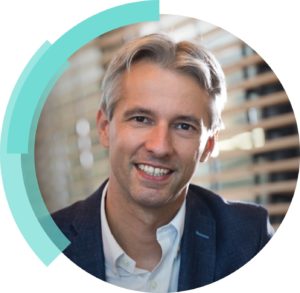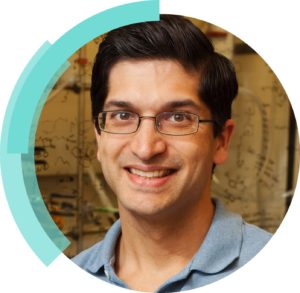We are delighted to announce that the 2022/23 ChemSocRev Pioneering Instigator Award has been jointly awarded to Dr Timothy Noël and Dr Ryan Shenvi ! The winners were selected by Editorial Board members due to their outstanding and innovative contributions to chemistry research.
| Timothy Noël is a researcher in the field of synthetic organic chemistry and technology, with a particular interest in the delicate synergy between the two fields. In 2004, Tim earned his PhD in the field of synthetic organic chemistry from Ghent University in 2009. Following his PhD, followed by a Fulbright Postdoctoral Fellowship with Professor Stephen L. Buchwald at the Massachusetts Institute of Technology (MIT). Upon returning to Europe, he joined Eindhoven University of Technology in 2012, and later became an Associate Professor in 2017. In 2020, Tim was promoted to Full Professor at the University of Amsterdam, where he is now the Chair of Flow Chemistry. Follow Professor Noël on Twitter @NoelGroupUvA |
| Ryan Shenvi is a Full Professor at Scripps Research in La Jolla, CA. Ryan earned his Ph.D. in 2008 from The Scripps Research Institute as an NDSEG Fellow under the supervision of Phil S. Baran, and undertook postdoctoral studies as a Ruth L. Kirschstein NIH Postdoctoral Fellow with E. J. Corey at Harvard University. His laboratory works at the interface of catalysis, complex molecule synthesis and structural biology. He serves as Advisory Editor on the Angewandte Chemie Scientific Advisory Committee, Executive Editor at the Encyclopedia of Reagents for Organic Synthesis and as a member of the Editorial Advisory Board for Tetrahedron Chem, ACS Central Science and Accounts of Chemical Research. Follow Professor Shenvi on Twitter @Shenvi_Lab |
The Chem Soc Rev Pioneering Investigator Lectureship recognizes mid-career scientists who have firmly established themselves in their independent careers, continuously published innovative work, and have pioneered several research areas. As part of the Lectureship award, Ryan and Tim will each be presenting lectures over the coming 12 months.
Details of the lectures will be announced in due course but keep an eye on Twitter @ChemSocRev for details!
Highly Commended Nominations
Each year, a large number of excellent researchers gets nominated for the ChemSocRev Pioneering Investigator Lectureship Awards. Due to the extremely high standard of nominations this year, we have decided to select a number of Highly Commended candidates, who the Editorial Board highlighted as performing exceptional science and deserving of recognition in the community.
 |
Kanishka Biswas obtained his MS and Ph.D. (Int. Ph.D) (2009) degree (Advisor- C.N.R Rao) from the Solid State & Structural Chemistry Unit, Indian Institute of Science (IISc) and did postdoctoral research (Advisor- Mercouri G. Kanatzidis) (2009–2012) in Northwestern University, USA. He is a full Professor in the JNCASR, Bangalore. He is pursuing research in solid state & inorganic chemistry, thermoelectric energy conversion, 2D materials, topological quantum materials and perovskite halides. He is recipient of numerous awards including the Shanti Swarup Bhatnagar Prize in Chemistry in 2021 which is the most coveted science & technology prize in India. He is an elected Fellow of Indian Academy Sciences (FASc), Bangalore. He is an invited Fellow of Royal Society of Chemistry (FRSC), London, UK. He is an Executive Editor of ACS Applied Energy Materials, ACS and serves as advisory board member of various international journals including Inorganic Chemistry, Journal of Solid State Chemistry, Journal of Materials Chemistry A, iScience, Materials Horizon and JACS Au. Follow Professor Biswas on Twitter @kanishkabiswas
|
|
 |
Prof. Radha Boya FRSC is a professor, Royal Society University Research fellow and Kathleen Ollerenshaw fellow in the department of Physics & Astronomy, and National Graphene Institute at the University of Manchester. Radha’s research team investigates properties of gas, liquids and ions confined in molecular scale with Angstrom (Å) -size capillaries constructed out of 2D-materials. Her research team works on developing Å-capillaries as a platform to experimentally probe intriguing molecular-scale phenomena under confinement. After completing her PhD (2012) in Jawaharlal Nehru Centre for Advanced Scientific Research India with Prof G U Kulkarni, she did her post-doctoral research with Prof Chad Mirkin at Northwestern University in the United States. In 2014, she moved to the University of Manchester in UK working with Prof Andre Geim, where she devised nanofabrication methods to make ultimately narrow fluidic channels with angstrom-scale dimensions, by effectively removing a single atomic plane from a bulk layered crystal. Following this, Radha secured a series of international research fellowships that have enabled her to rapidly build her research profile and an independent career in the UK. She became a full professor in 2020. Follow Professor Boya on Twitter @radhaboya |
|
 |
Prof. Dr. Rui Cao received his BS (2003) in chemistry from Peking University in China and his PhD (2008) from Emory University in USA with Professor Craig L. Hill. He worked as a Postdoctoral Fellow (2008-2009) at Emory University and was the Dreyfus Postdoctoral Fellow (2009-2011) at MIT with Professor Stephen J. Lippard. In 2011, he became a professor at Renmin University of China, and transferred to Shaanxi Normal University in 2014. His research interests lie in bioinorganic chemistry and catalysis for energy-related small molecule activation reactions. By developing metal porphyrins and metal corroles as model catalysts, he paid particular emphasis on illustrating the reaction mechanisms of H-H and O-O bond formation/lysis. He is the recipient of the SPP/JPP Young Investigator Award in 2020. He is the Editorial Board Chair of ChemSusChem and is the Editorial Board member of several journals, including Chemical Society Reviews, ChemPhysChem, Chinese Journal of Catalysis, Chinese Chemical Letters, and Journal of Electrochemistry.
|
For the 2022/23 Lectureship, eligible nominees completed their PhD typically between the last 10-15 years. Appropriate consideration was given to those who had taken a career break or followed a different study path. Eligible nominees were shortlisted and then further assessed by members of the Chem Soc Rev Editorial Board, and the winners were determined by independent vote by Editorial Board members.












